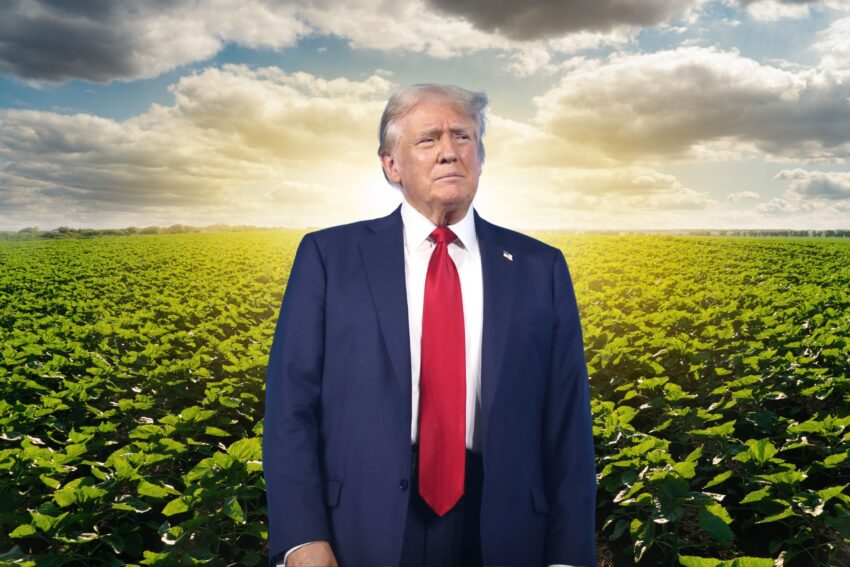Donald Trump secured victory in the 2024 presidential election, at a time when the agricultural sector is at a pivotal point. While most farmers are breathing a sigh of relief that Kamala’s agenda has been thwarted, they are still unsure of their future under a second Trump presidency. With a history of policies that both supported and challenged American farmers, what might a second Trump term mean for those who work the land?
Tariffs, Trade, and Independence
Trump’s previous administration was marked by its aggressive use of tariffs, particularly against China, which led to retaliatory measures affecting U.S. agricultural exports. Farmers might initially view this with skepticism, recalling the difficulties of past trade wars. However, these pressures could actually foster a new era of agricultural independence and resilience.
The push for independence might encourage farmers to diversify their markets. Instead of relying heavily on established trade routes, they could explore new markets, potentially leading to a broader international presence for American agriculture.
The disruption in traditional markets might bolster local and regional food systems, reducing dependency on global supply chains. This could lead to more resilient farming practices and support rural economies by keeping more money within local communities.
Focus on Food Production
Trump’s potential policies could steer the USDA away from what some critics label as ‘non-essential’ initiatives like the Green New Deal’s environmental mandates. We can expect the massive flow of money toward wind turbines and solar panels on farmland to cease, with this money being repurposed for more critical needs. Redirecting focus towards traditional food production could mean less emphasis on climate-related restrictions, allowing farmers to operate under fewer regulatory constraints, leading to increased production efficiency.
The dismantling of Diversity, Equity, and Inclusion (DEI) programs should be seen as a return to core agricultural missions. The soon-to-be vice president J. D. Vance previously called the USDA’s $2.2 billion payout to non-White farmers “disgraceful” and discriminatory toward White farmers, who are the backbone of American agriculture. The DEI programs under Vilsack’s watch have often diverted attention and resources from the primary goal of food production.
RFK Jr.’s Role in Health Policy
The inclusion of Robert F. Kennedy Jr., known for his skepticism towards mainstream health policies, in Trump’s administration might cause apprehension among some in the farming community, especially regarding GMO and pesticide regulations.
Kennedy’s influence could pivot towards promoting regenerative agriculture, which focuses on soil health, biodiversity, and water cycles. This would potentially align with a broader push for more efficient and “sustainable” farming practices.
There might be an increased emphasis on reducing harmful pesticide use, fostering organic food production, and encouraging the consumption of whole foods, which could appeal to both health-conscious consumers and farmers looking for premium market niches.
Addressing Agricultural Concerns
Trump’s immigration policies could impact agricultural labor, an area where skepticism remains high. Big agribusinesses do not want to have to pay competitive wages to American workers, having benefitted from years of illegally hiring low-wage immigrants. However, deporting illegal aliens may push forward automation and technology in farming, potentially lowering labor costs in the long run.
While past aid for farmers during trade disputes was criticized for benefiting larger farms disproportionately, there’s an opportunity to reform these programs to better support smaller operations and ensure a more fair distribution of aid.
Farmers will watch closely how Trump’s economic policies unfold, particularly concerning inflation and energy costs. His promise to end inflation might stabilize input costs, but skepticism persists given past economic fluctuations.
Looking Ahead
Under Trump, American farmers might experience a mix of challenges and opportunities. While some traditional policies could disrupt existing trade relationships, they might also push the agricultural sector toward more long-term resilience and stability. The influence of figures like RFK Jr. could introduce progressive farming methods, potentially offsetting some of the environmental concerns left unaddressed by the rollback of climate-focused policies.
Farmers who navigate these changes adeptly could find themselves at the forefront of a new agricultural paradigm, where resilience, innovation, and a return to food-centric focus might not only ensure survival but also lead to a thriving sector. The agricultural community, which voted for Trump in droves, remains cautiously optimistic as we transition into Trump’s term as the 47th president of the United States.


